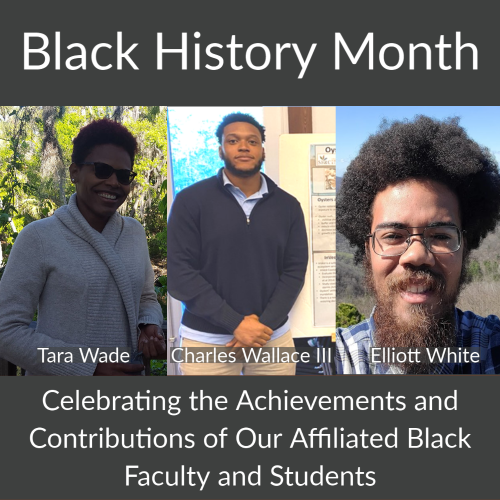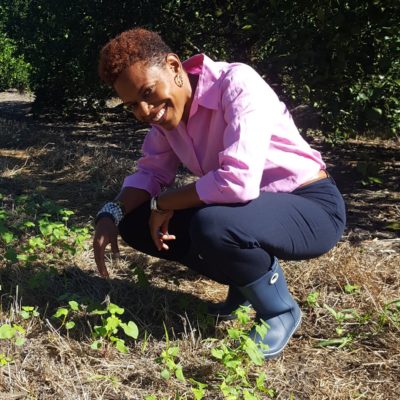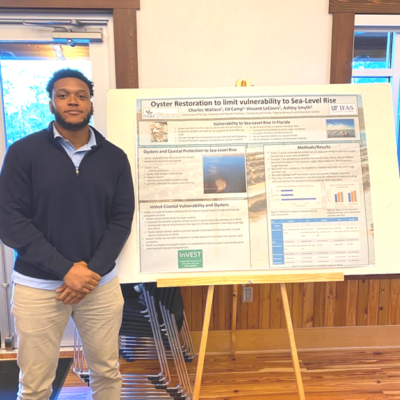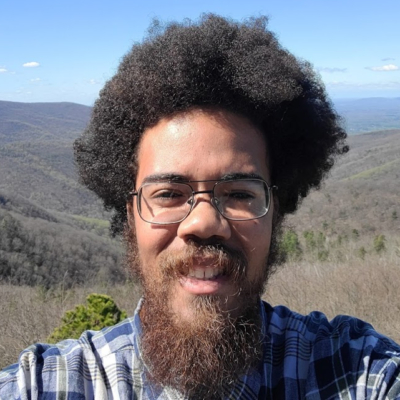February 8, 2021
Water Institute Spotlight February 8, 2021

In commemoration of Black History Month throughout February we will celebrate and highlight the scholarly achievements and contributions of UF Water Institute affiliated Black faculty and students working to understand and solve interdisciplinary water issues.

Dr. Tara Wade, Assistant Professor
Dr. Tara Wade is an Assistant Professor in the Food and Resource Economics Department and the Southwest Florida Research and Education Center, and serves in the Water Institute Faculty Advisory Committee. Dr. Wade’s research examines the economic factors that affect the adoption of conservation practices, including those that improve water quality. Findings of her research can be used to simulate costs of policies or programs that encourage widespread conservation. Her research and Extension programs help farmers to reach their economic and conservation goals in efficient ways. For instance, research she and her colleagues conducted demonstrates that among other factors, conservation adoption is closely tied to farm and farmer characteristics, with farm size consistently playing a major role in adoption and sustained use decisions. Her results show that small-size farms lag in conservation practice adoption, likely due to financial constraints. This body of work also finds that small farms are less likely to enroll in cost-share programs, which has important implications for the success of programs that attempt to use cost share to increase conservation acres and improve water quality. This information can be used to design policies and Extension programs that target this group of producers.
I love being outdoors and nature in general. Working on economic issues related to natural resources (and clean water, specifically), helps me to use my skills to tie what I do to what I love. – Dr. Tara Wade

Charles Wallace III, PhD Student in Forest Resources and Conservation
Charles Wallace III is a PhD Student in Forest Resources and Conservation who holds a master’s degree in Fisheries and Aquatic Sciences from UF. Charles studies oysters and oyster restoration to protect shorelines. The objective of his research is to measure the impacts that oyster restoration has on coastal vulnerability exposure in Lone Cabbage Reef, Cedar Key, Florida. The explicit assessment of likely ecosystem service benefits provided by Lone Cabbage Reef restoration across current and future sea-level rise trends should augment more transparent decision-making regarding oyster restoration in the Gulf of Mexico, especially as coastal areas and the people that live there face increasing risks from erosion and wave damage. Charles aims to continue working on ecosystem service distribution for an equitable provision of benefits. He also wants to work towards a greater goal of connecting different communities for positive management of natural resources.
Black History Month is important for our community; the celebration of these contributions to society should remind us of the common values and commitment to excellence we all share. Each passing year, we owe it to ourselves to recognize the work and contributions of Black Americans throughout history, not just to celebrate achievement but to remind ourselves of how far our nation has come and how much further we must go. Black History Month is a reminder that although we are a free nation of equal people under the law, America has not always lived up to that ideal. Black History Month should be seen a commitment that we will we never go back to those times of marginalization as well as a celebration of the people that achieved great things despite great odds. – Charles Wallace III

Dr. Elliot White Jr., Postdoctoral Research Associate at University of Virginia
Dr. Elliott White Jr. is a Water Institute Alum who received a PhD in Environmental Engineering Sciences in 2019, and is currently a Postdoctoral Research Associate at the University of Virginia Department of Environmental Science. During his research at UF, Dr. White developed remote sensing techniques to assess coastal forest health and degradation driven by sea-level rise and saltwater intrusion. He authored the highly-cited review paper “Restore or retreat? Saltwater intrusion and water management in coastal wetlands“, one of the top-ten cited articles in the journal Ecosystem Health and Sustainability, and was awarded several scholarships and grants, including the UF Melnick Scholarship, Society of Wetland Scientists Student Research Grant, UF Glick Graduate Scholarship, American Society of Civil Engineers Gainesville Branch Graduate Student of the Year, and NSF Graduate Research Fellowship Honorable Mention. In his current position he is a part of the Water Futures Initiative, the Environmental Resilience Institute’s latest multi-institutional collaboration, where he leads the working group on changes in the coastal land margin. Dr. White’s future goal is to become a professor of coastal wetland ecology. He loves cooking, sharing food with others, and talking about music.
I seek to honor diversity by mentoring and supporting students from diverse backgrounds. I have served as a member of my department’s Diversity, Equity, and Inclusion Committee at UVA and continue to serve on the Society of Wetland Scientists Human Diversity Committee. – Dr. Elliott White Jr

